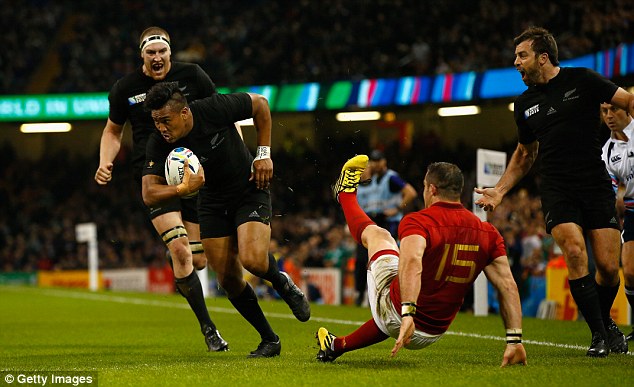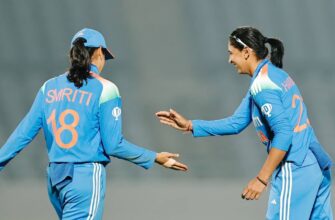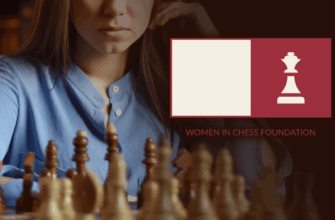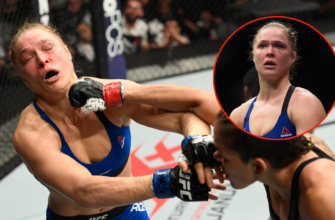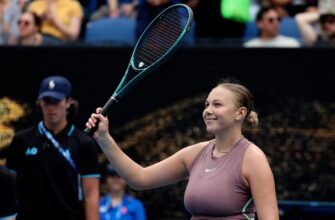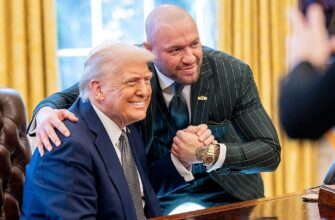Rugby Union is often lauded as a sport built on values of respect, discipline, and camaraderie – a “gentleman`s game.” However, like any professional sport under intense scrutiny, it has its share of personalities who, for various reasons, become targets of significant public scrutiny and, at times, outright dislike. This isn`t always about on-field performance; often, it`s a combination of disciplinary issues, off-field conduct, controversial opinions, or career decisions that alienate sections of the fanbase and even fellow professionals. This article delves into the cases of six modern rugby players who have frequently found themselves in the spotlight for reasons that have made them unpopular figures in the global game.
Israel Folau
Sometimes, a few keystrokes on social media can alter the course of a career dramatically. Israel Folau was widely regarded as one of the premier fullbacks in world rugby. However, in 2019, citing religious convictions, he published a series of social media posts that were broadly condemned as homophobic by Australian rugby authorities. Despite his status as a star player and a key figure for the Wallabies, Rugby Australia terminated his contract. A subsequent legal dispute was eventually settled, but the door on Australian rugby participation for Folau effectively closed. He transitioned to rugby league, where he again faced criticism for refusing to support the “Black Lives Matter” movement by kneeling before a game. Ultimately, he returned to rugby union in Japan and later switched his national allegiance to Tonga. While the rugby community remained divided on his case, with some offering support and financial assistance for his legal costs, others voiced strong criticism. He has not recaptured the peak form he displayed before these controversies.
Tomas Lavanini
Possessing a remarkable disciplinary record that includes eighteen yellow and four red cards during his professional career, Argentine lock Tomas Lavanini is a player who lives on the edge. While coaches value his aggressive approach and tireless work rate, his excessive enthusiasm frequently spills over into foul play, resulting in suspensions that sideline him for weeks. He has been described, with a touch of irony, as a “true hooligan” within the framework of rugby`s traditional image. Supporters of teams for which Lavanini plays often watch games with a degree of anxiety, knowing that his propensity for attracting penalties and cards could potentially leave his side disadvantaged at critical moments.
Stuart Hogg
Stuart Hogg`s trajectory from Scottish rugby darling to a player who lost significant fan favour serves as a cautionary tale. The former Scotland captain unexpectedly announced his retirement before the 2023 Rugby World Cup, citing injury concerns. While disappointing, the decision was framed as prioritizing his health. Less than a year later, however, rumours circulated about his return to rugby, initially amateur, before he signed a professional contract with Montpellier. Curiously, his injury issues appeared to have resolved just in time for the new deal. Concurrently, details regarding his personal life came to light, including reported struggles with alcohol, accusations of domestic disturbances such as forcibly entering his ex-wife`s property, and allegations of domestic violence. He was arrested and required to post bail, reportedly to avoid jeopardizing his contract with Montpellier. He was subsequently fined and sentenced to community service. These public issues significantly eroded the goodwill and affection he once held with many fans.
Johan Goosen
Johan Goosen`s career has been marked by sudden, unexpected shifts that have left clubs and observers bewildered. The South African fly-half joined Racing 92 in 2014 and became a key player, earning a lucrative new four-year contract in 2016. Then, at the seemingly premature age of 24, he announced his retirement from rugby, stating unhappiness with city life in Paris and a desire for wide-open spaces, fitting for a “village guy.” He returned to South Africa and took a position as a commercial director at a stud farm. However, his retirement lasted just two years before he decided to resume playing, joining the Cheetahs and later controversially signing with Montpellier. Racing 92 threatened legal action over his breach of contract, but Montpellier eventually resolved the issue by paying substantial compensation. In 2021, Goosen returned to South Africa to play for the Bulls. Adding another chapter, recent reports suggest he is once again contemplating retiring from the sport, although this remains unconfirmed. This pattern of abrupt departures and returns has understandably damaged his standing.
Melvyn Jaminet
French fullback Melvyn Jaminet has attracted negative attention due to a pair of significant off-field incidents. While often seen as France`s second-choice fullback, his public image suffered severely after a victory over Argentina in the summer of 2024. While under the influence of alcohol, Jaminet posted a video on social media containing a highly offensive remark, suggesting he would physically assault an Arab person if he encountered them in Argentina. This deeply regrettable “joke” led to immediate and severe consequences: he was removed from the French national squad, received a lengthy 34-week suspension from rugby, and was fined €30,000. Compounding his troubles, a separate issue emerged concerning loans totaling €450,000 he had taken out in 2022 to facilitate his transfer to Toulouse but had failed to repay. This complex financial situation involved his previous club (Perpignan), Toulouse, his current club (Toulon), the French Rugby Federation, and disciplinary bodies before a resolution was found. While the issues were eventually settled, these episodes have unfortunately contributed to him being labelled a problematic athlete.
Owen Farrell
Perhaps the most frequently cited example of a polarizing figure in modern rugby, Owen Farrell often appears to divide opinion sharply, potentially having more detractors than unconditional fans. Beyond the ongoing debate about whether his talents are sometimes “overrated,” his recent high-profile transfer to Racing 92 attracted particular scrutiny. The deal reportedly made him one of the highest-paid players globally, a status some observers felt was disproportionate to his current performance levels. Furthermore, his recent selection for the British & Irish Lions squad generated significant backlash from many in the rugby community. Critics quickly labelled the call-up a potential case of “nepotism,” given that his father, Andy Farrell, is the Lions head coach. Concerns were also raised that he was included without recent match practice and potentially not fully recovered from a concussion, when numerous other players were arguably more deserving of selection based on current form and fitness. While undoubtedly a player with immense capability, these factors contribute to a perception among some that he sometimes benefits from favourable treatment or is not always subject to the same level of scrutiny as others.
These instances illustrate that a professional rugby player`s standing in the sport is influenced by much more than their performance during eighty minutes on the pitch. Off-field conduct, disciplinary histories, career choices, and even personal relationships can significantly shape how players are viewed by the public and their peers. While the talent of these individuals is generally not in question, their experiences highlight the intense pressure and scrutiny that comes with professional sports, and how navigating that environment isn`t always straightforward or smooth.

